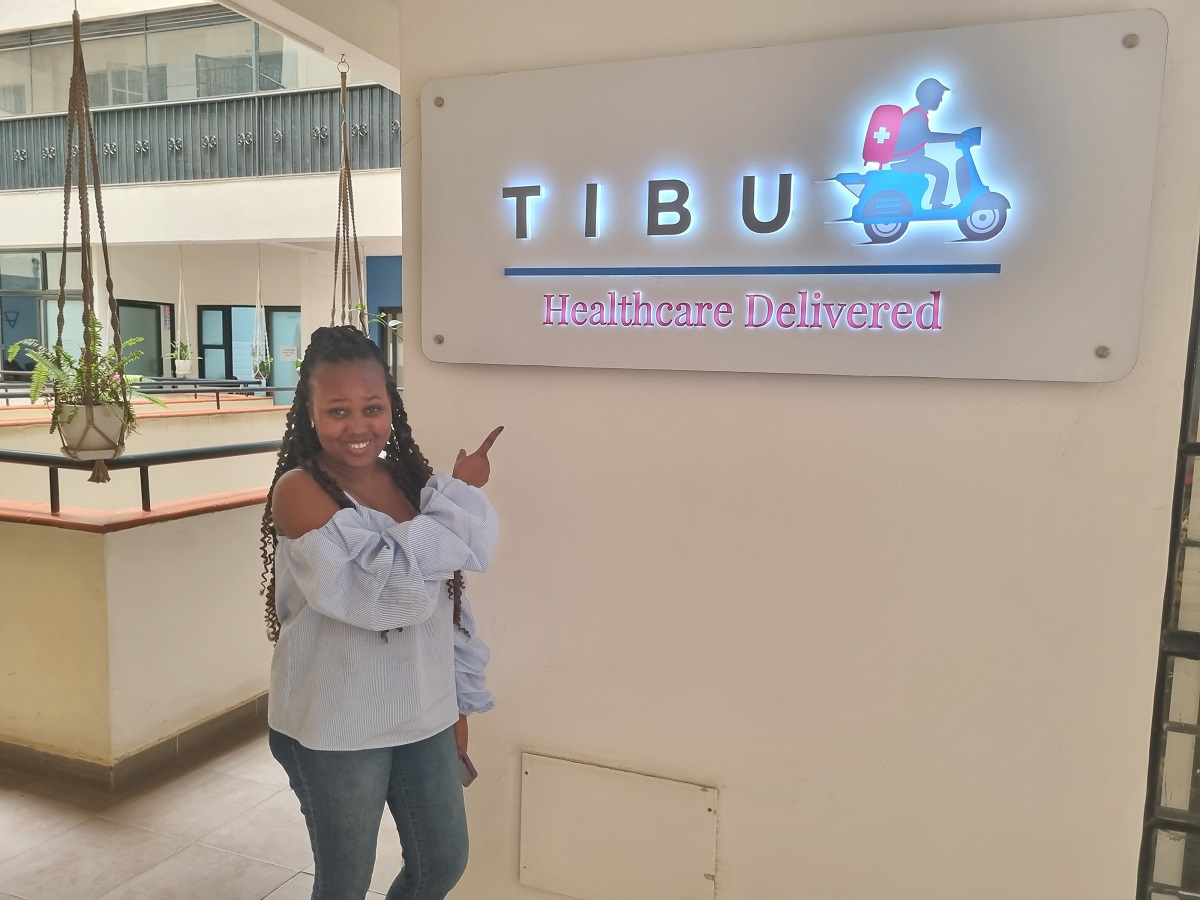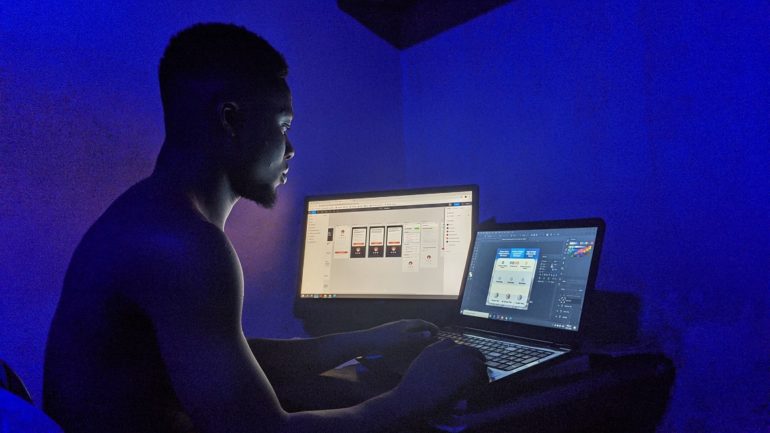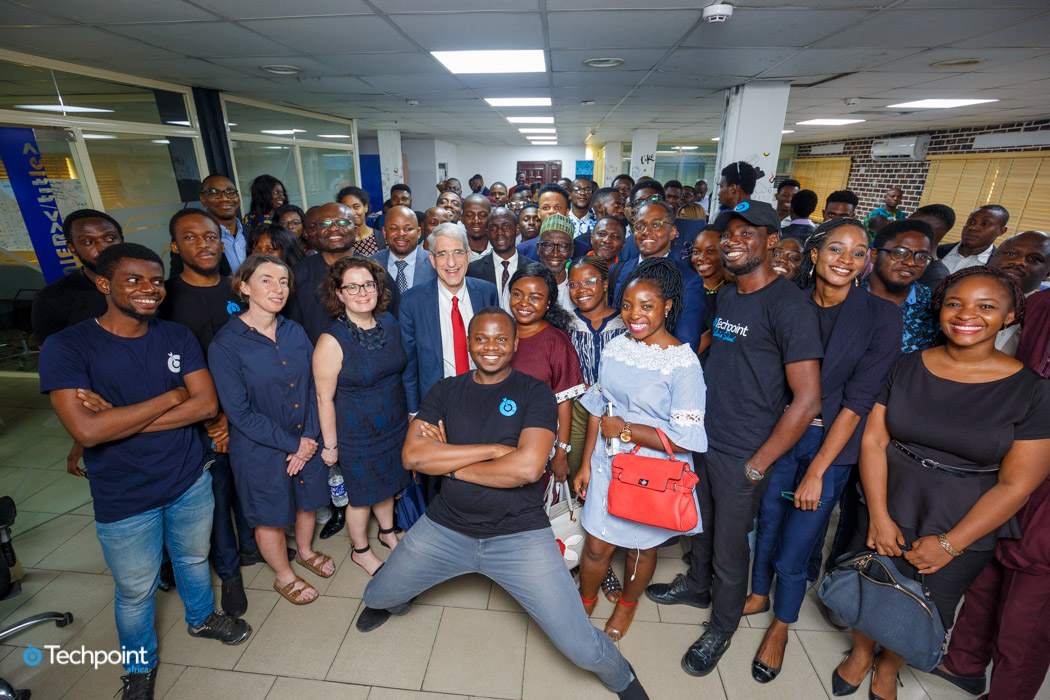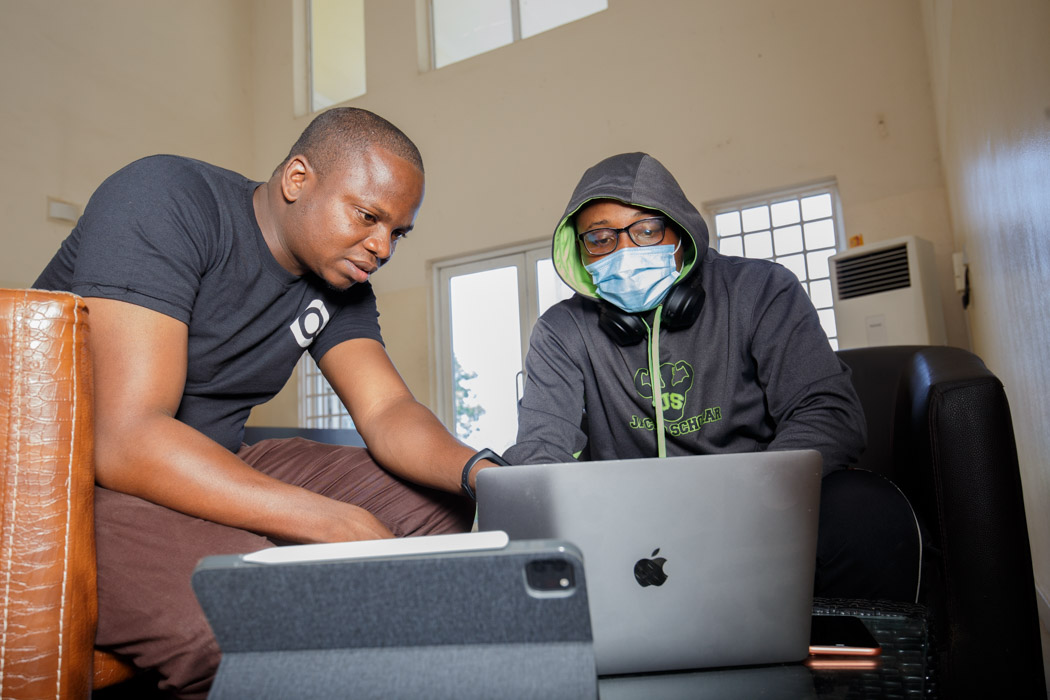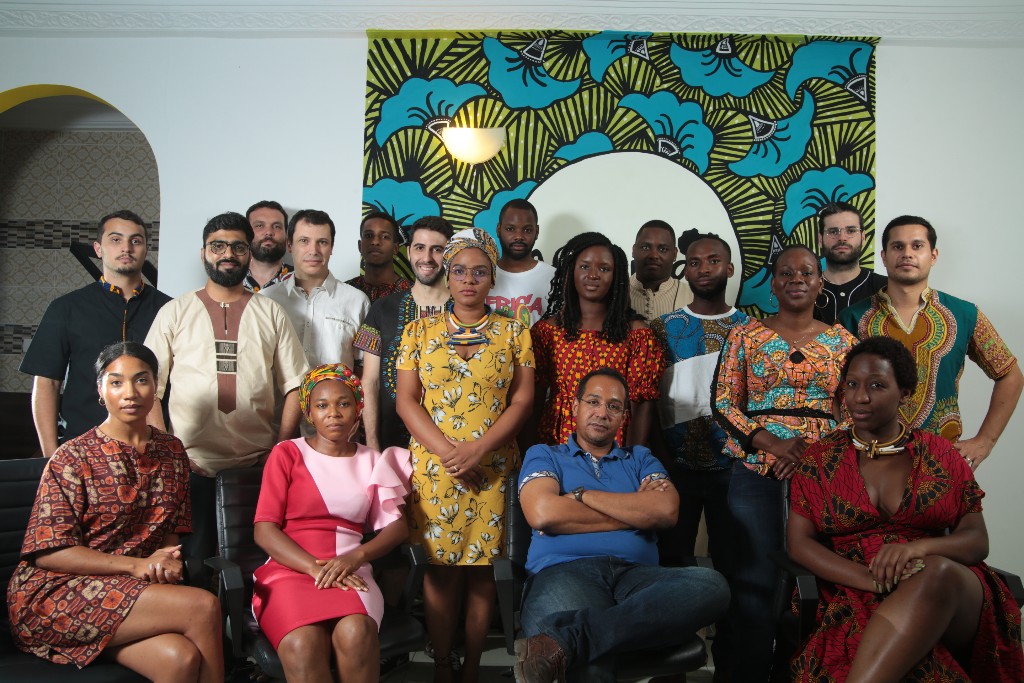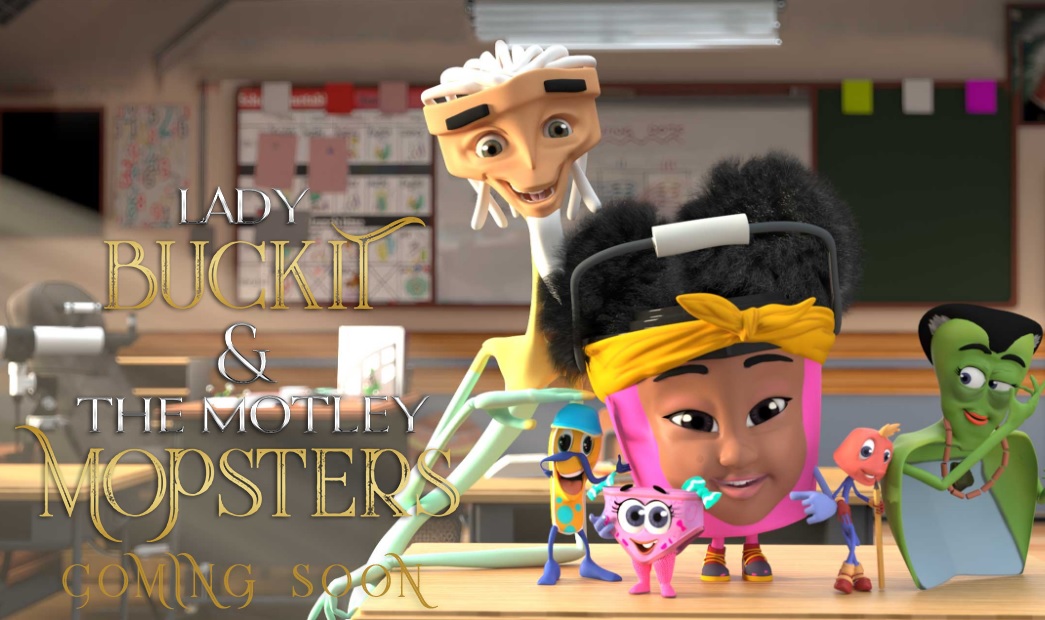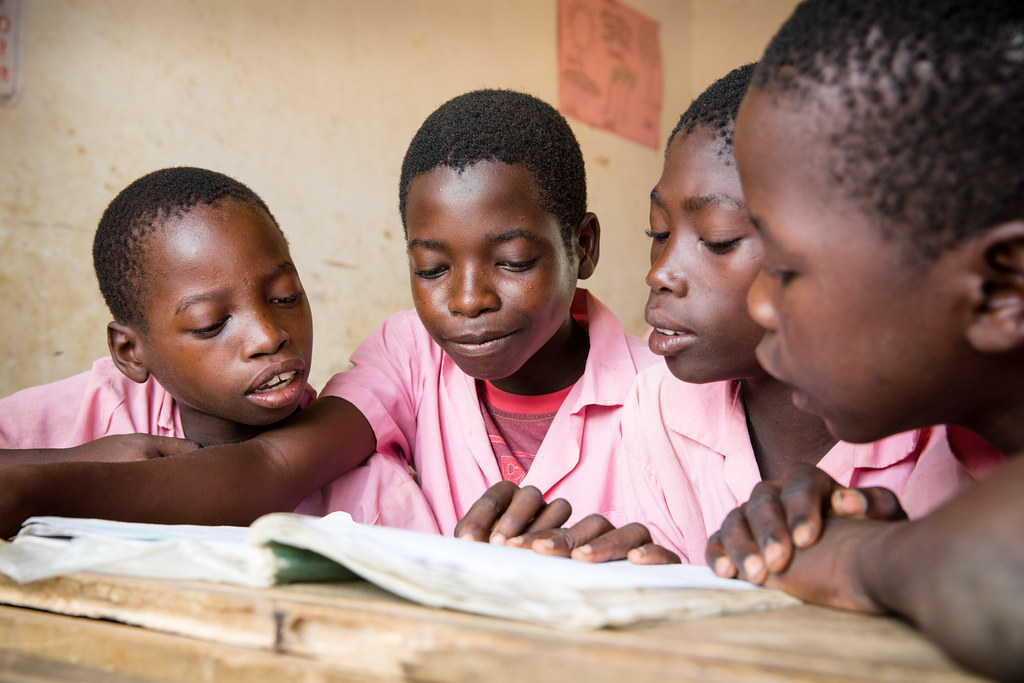Discover Built in Africa
Built in Africa

Built in Africa
Author: Techpoint Africa
Subscribed: 48Played: 130Subscribe
Share
© 2022 Techpoint Africa
Description
Built in Africa is a podcast that puts the spotlight on African startups, innovators and everything that makes them tick.
Follow us on social media @BinAfripod
Fan mail: hello@builtin.africa
Ad placements: ads@builtin.africa
Follow us on social media @BinAfripod
Fan mail: hello@builtin.africa
Ad placements: ads@builtin.africa
31 Episodes
Reverse
On this episode of Built in Africa, we'll be looking at how Nigerian rental marketplace, Rentit , helps people rent goods and cut down the cost of buying to meet really temporary needs.
I have a special offer for you from the guys at Magic Mind.
All you have to do is go to:
https://www.magicmind.co/biaAnd use my discount code at checkout BIA20 to get a limited 20% off your first order
To mark the return of Built in Africa, we spotlight Tibu Health a startup looking to take away the long queues and inefficiencies that plague Kenya’s healthcare sector by coming to your doorstep with a world-class clinic on cue.
Welcome to Season 2!!! Thanks for coming back.
I have a special offer for you from the guys at Magic Mind.
All you have to do is go to:
https://www.magicmind.co/biaAnd use my discount code at checkout
BIA20
to get a limited 20% off your first order
In this episode of Built in Africa, we examine how Nigerian e-mobility company, Savenhart Technology Limited (Siltech), wants to foster a cleaner Africa through Electric Vehicles production.
This episode is brought to you by Whogohost WordPress Hosting. Visit builtin.africa/whogohost and use coupon code BUILTINAFRICA to get 25% off on any annual plan.
This episode is brought to you by Whogohost WordPress Hosting. Visit builtin.africa/whogohost and use coupon code BUILTINAFRICA to get 25% off on any annual plan.
This episode is brought to you by Whogohost WordPress Hosting. Visit builtin.africa/whogohost and use coupon code BUILTINAFRICA to get 25% off on any annual plan.
FULL TRANSCRIPT
Narrator: I remember ten years ago when African music didn’t get as much global attention as it does now. Interestingly, now that I think of it, it wasn’t because of a lack of talent or content. So, I wonder what has changed. Well, your guess is as good as mine.
But Africa now has a growing youth population, exceptional music talents, unique genres, and streaming companies. Africa’s music industry is doing so well that global companies are eager to sign deals with artistes to get a share of their earnings.
Guess what? Streaming made up 62.3% of the $21.5 billion revenue made by the global music industry in 2020.
If you ask me, digital distribution was clearly the game-changer. And the good thing is that apart from foreign platforms like Spotify, Apple Music, YouTube Music, Deezer, and Shazam, local streaming platforms are also contributing their quota.
On this episode of Built in Africa, we explore how indigenous music streaming platform, AfroCharts, is offering unreached African music talents the opportunity to get paid for their content.
Narrator: Burundi-born Leonard Novati, AfroCharts founder, lived his early life in Tanzanian refugee camps because of the constant civil wars in his home country. During his stay, music was one of the things he loved doing asides from other menial jobs he did to make ends meet, so he stuck with that on reaching the US in 2007 at the age of 16.
However, he needed to fuel his thirst for entrepreneurship. But what were his options: become a musician, a music producer, or a disc jockey (DJ). Eventually, Leonard chose to make a living from DJing for some reason.
Leonard Novati: When I got here where there was so much technology, I thought I could sing like most young kids, young boys and girls, I tried that, it didn’t work. And then I tried to open a recording studio, it didn’t work either. So, I’m like, well, I love music, I must share with the public. You know, somehow, I have to make people happy through music. If I cannot sing, I cannot produce, why don’t I become a DJ? From there, I started teaching myself to DJ.
Narrator: So, he founded a DJ company to make a living while in college and focused majorly on African music, which turned out to be his selling point. He often got invited to African and American events.
While he trained himself to become a DJ, he graduated with a computer science degree and later became a web developer.
In 2014, he saw a need. People listening to his Afrobeats mix asked where they could get it, and some African artistes also contacted him to add their songs to his mix. That was when he had the idea for AfroCharts. But his first attempt wasn’t a success.
Leonard Novati: While I was in college, I actually tried to create something similar but for beats. Like an online beat-selling marketplace. Whether you’re an African or not, where you can sell your beats to the world. Artistes are looking for fresh beats. That failed. That was in 2014.
Narration: After that, he started brainstorming the idea for AfroCharts in 2016.
Leonard Novati: All these streaming platforms, African listeners and artistes still feel like they’re left out. That’s when it hit me, I’m like why don’t we create our own platform? Our platform focuses on African artistes, Af
This episode is brought to you by Whogohost WordPress Hosting. Visit builtin.africa/whogohost and use coupon code BUILTINAFRICA to get 25% off on any annual plan.
FULL TRANSCRIPT
SFX: Ambulance siren
Narrator: Access to healthcare is one of Africa’s biggest challenges. The World Health Organization’s recommended doctor to patient ratio is 1:600, but Nigeria falls short with 1:2,753 as revealed by its federal government in March 2020 at the onset of the pandemic. From this, one thing is sure: Nigeria is a far cry from having decent healthcare.
With these statistics come a string of casualties. For Ifeanyi Ossai, a Nigeria and US-based entrepreneur, his aunt died on her way to a distant hospital following a protracted allergic reaction, a death that could have been avoided if she had received medical attention sooner.
SFX: Sombre sound
This sad event would soon inspire Ifeanyi to build four functional medical clinics in Delta state, Nigeria, a place he grew up. Enter WeCare in 2017. to provide superior medical care to underserved areas to reduce or eliminate preventable deaths.
Narrator: On this episode of Built in Africa, we examine how a Nigerian-founded healthcare business, WeCare evolved into a full-blown telemedicine healthtech startup, CribMD.
Narrator: Although it was a well-thought-out idea, Ifeanyi soon discovered that many patients went home without getting the healthcare they sought; with the problem of accessibility solved, the challenge of demand surfaced.
Ifeanyi Ossai: Our physical clinics could not accommodate most of the customers we get on any given day. On any given day, we could only see about 10% of the customers that come to our doorsteps”
Narrator: That’s Ifeanyi Ossai, CEO and Chairman, WeCare and co-founder, CribMD.
In a bid to solve the demand problem, WeCare planned to open 300 clinics in sub-Saharan Africa. But in 2020, it became clear that the demand for healthcare would always exceed supply.
Ifeanyi Ossai: That is when we came to the realisation that we need to solve healthcare in Africa another way.”
Narrator: So, in WeCare’s third year of operation, Ifeanyi sourced out the best brains he could get, to help him salvage the leftovers of his passion for affordable and accessible healthcare. He found two.
In June 2020, Ifeanyi co-founded CribMD with Ngiri Michael, an experienced software engineer who serves as Chief Technology Officer (CTO); and Lorna Mae Johnson, a nurse and midwife running some medical clinics in Los Angeles, serving as Chief Financial Officer (CFO).
Narrator: So, here’s exactly how CribMD works.
Ifeanyi Ossai: Instead of you coming to our physical clinics, we can deliver the doctor to your home at your comfort and convenience So, our goal is to democratise health care by delivering quality, affordable, and accessible healthcare to you wherever you are in Africa.”
Narrator: … and how the business makes money?
Ifeanyi Ossai: CribMD makes money by charging monthly subscriptions. So, we charge you a very small amount of money so that you can access our healthcare on-demand.”
Narrator: Through the mobile app and website, users can have access to doctor home calls, telemedicine, prescription delivery, and many other features that don’t require them to visit a hospital by su
This episode is brought to you by Whogohost WordPress Hosting. Visit builtin.africa/whogohost and use coupon code BUILTINAFRICA to get 25% off on any annual plan.
FULL TRANSCRIPT
Narrator: Port Harcourt, Nigeria, Saturday March 25 2017. Chukwuma Eleje, father of four, says goodbye to his family as he sets out to make deliveries for the day. Chukwuma works for one of the third-party logistics partners of eCommerce giant, Jumia. But little does he know that it’s his last goodbye.
Chukwuma ended up being murdered by 2 young men who ordered 2 iPhone 7 devices using Pay on Delivery, a popular payment option on Nigerian eCommerce platforms. After brutally snuffing the life of Mr. Eleje, the young men tied Chukwuma up and stuffed him into a septic tank.
The unfortunate incident happened at a time when Nigerians were still coming to terms with online shopping. Pay on Delivery was the preferred option, given the level of distrust and fear they feel. But the murder incident didn’t look good on the industry.
The question is if they took Pay on Delivery out of the equation in those early days, what were the chances of survival for eCommerce businesses in Nigeria?
Naturally, these platforms began to explore safer options as it became clearer that Pay on Delivery wouldn’t be sustainable in the long haul. Soon, escrow services became the perfect replacement but they were quite unpopular at the time.
Somewhere in Ghana in 2017, on the floors of the Meltwater Entrepreneurial School of Technology (MEST) accelerator programme, three Nigerians, Ehi Aigiomawu, Ibrahim Oladele, and Tomisin Adeshiyan came up with the idea for a bespoke escrow service. They named it Vesicash. Globally, the eCommerce sector is predicted to be worth $6.5 billion by 2022, and Vesicash plans to make it safe for Nigerian online businesses
Ehi Aigiomawu: We found out that buyers could not trust the sellers to deliver the right items, so they would prefer Pay on Delivery instead. And sellers, on the other hand, people who sell, are not really convinced that “oh, if I ship this item, am I really sure this person will pay me? Won’t it be an issue later on?”. So most of the time, this was leading to lots of unfulfilled orders. So how do we solve this problem? We knew that the main issue that these two people — the buy and the seller — had was trust. So they couldn’t trust each other. So we asked, “how could we build a platform to foster trust between these sets of people so that they can transact smoothly?”
Narrator: That’s Ehi Aigiomawu, Vesicash Co-founder and Chief Technical Officer.
Ehi Aigiomawu: We did a couple of research in different spaces, and we found out that the problem was not just in the eCommerce space, it was also in the freelance sector, it was also in the real estate sector, and in other sectors too. So, we narrowed down and we decided that we’re going to solve this problem, and we decided that escrow was a way for us to solve this problem, to foster trust between buyer and seller. So, we immediately registered the company called Vesicash with the sole purpose of guaranteeing payment security for digital transactions across Africa.
Narrator: So, they pitched the idea and it sounded good.
Ehi Aigiomawu: MEST liked it but then, we had to come back to Nigeria to validate the idea… MEST is in Ghana. Nigeria is a bigger market than Ghana so we had to come back to Nigeria, to actually validat
Please subscribe, share and drop a review of this podcast, by searching for ‘Built in Africa’ on Apple Podcasts, Google Podcasts, Spotify, iHeartRadio or wherever you get your podcasts. You can also email us feedback at hello@builtin.africa
For more stories on startups and innovation in Africa, please visit techpoint.africa
Build the money of the future at https://currency.techpoint.africa/
Image by WorldSpectrum from Pixabay
Please subscribe, share and drop a review of this podcast, by searching for ‘Built in Africa’ on Apple Podcasts, Google Podcasts, Spotify, iHeartRadio or wherever you get your podcasts. You can also email us feedback at hello@builtin.africa
For more stories on startups and innovation in Africa, please visit techpoint.africa
On this episode of Built in Africa, we take a look at how Y Combinator-backed Eze Wholesale is altering the global landscape of the used smartphone market.
Image credit: Techjaja.com.
FULL TRANSCRIPT
Narrator: In 2017, two friends, one a software engineer, and the other, a petroleum engineer, saw an opportunity. They became wholesalers in the used smartphone market currently valued at a whopping $46 billion.
They operated this business for over two years before they eventually realised that the used smartphone market had more issues than they thought. This problem gave birth to an entirely new business.
[Theme song]
On this episode of Built in Africa, we explore how Y Combinator-backed Eze Wholesale is altering the global landscape of the used smartphone market.
David Iya and Joshua Nzewi are childhood friends, and they ran a couple of businesses together up until they got into the university.
By 2016, Joshua had become a petroleum engineer at Shell while David had worked as a software engineer with two US-based Internet companies.
One day, David called Joshua telling him about a business opportunity he had in mind:
Joshua Nzewi: So one day he called me the scan the arbitrage opportunity between buying phones locally and selling them online. And that’s what brought us into that.
Narrator: Having run businesses before, it didn’t take long for the two friends to kick this off. They did this for two and a half years but soon began to notice a trend.
Joshua Nzewi: For about two and half years where we were just trading devices, buying them from individuals and selling them overseas. Until we went to trading conferences where we realised that there are inefficiencies in the market at a much higher level where companies are moving a billion dollars in devices a month. And realising this was not just a problem in the United States but also abroad as well. So the channels in which people are able to source these devices and then resell them.
Narrator: So in January 2020, they built Eze wholesale to try to solve this problem.
Joshua Nzewi: So we created this online marketplace that would enable people to transact a lot faster, with more security and safety, and transparency, and much more efficiently than people are currently trading now.
Narrator: Globally, the used smartphone market is valued at $46 billion, and in markets like Nigeria, it has continued to grow in importance. The International Data Corporation (IDC) predicts that used smartphone shipments will exceed 330 million units with a market value of $67 billion by 2023.
Here’s how this process works.
Ben lives in the UK and uses an iPhone X. But, he’s tired of it, so he walks into a carrier store and drops it off. The carrier store then auctions the iPhone X and other phones that have been dropped off to wholesalers.
The wholesalers are tasked with the responsibility of effective distribution to those who need them. And this is why weeks later, Tobi buys that iPhone X in Nigeria for much less than its original cost.
As a B2B platform, Eze Wholesale allows traders to place, buy, and sell used smartphones. Sellers can post the devices they have in stock, and then buyers can buy directly from them via the platform.
For Eze wholesale, the aim is to open up the market for all and eliminate the middlemen in this space.
Joshua Nzewi: What we’re trying to do in this space is open the ma
FULL TRANSCRIPT
Narrator: Mental health in Africa is often misperceived, leading to the stigmatisation of people with mental health issues. Because of this, those in need of treatment usually put it off. The cost of therapy doesn’t help either.
On this episode of Built in Africa, we put the spotlight on Shezlong, the first mental health-tech solution in the Middle East and North Africa (MENA).
According to a survey carried out by Egypt’s Ministry of Health in 2018, about 25 million people in Egypt — a quarter of the population — are suffering from a range of mental illnesses.
SFX: Ambulance siren.
In 2014, Ahmed Abu ElHaz, an Egyptian software engineer, was in an accident that almost cost him his limbs.
Ahmed Abu ElHaz: I had a severe depression after the accident and I wanted to go to a therapist to recover. But unfortunately, in Egypt, and similarly around Africa, it’s very difficult to find a good therapist.
Narrator: Given his previous background as a consultant with the World Health Organisation on mental health, Ahmed decided to build a platform to tackle the problem he faced.
Ahmed Abu ElHaz: I thought about how we can connect licensed therapists with anybody having mental disorders in a convenient, private, and anonymous way.
Narrator: Ruminating on how to tackle the problem, he considered stigmatisation, misconception, contradictions, and religious stance on mental health disorders, and concluded that online was the way to go.
Ahmed Abu ElHaz: The online therapy, definitely, it’s more convenient than clinics in different ways. The first thing is the people. It’s easier to share their emotions and share their thoughts in their houses, rather than going to the clinics.
Narrator: And so, in 2015, Shezlong was born as a video conferencing platform with a focus on mental health. With only three therapists initially, the platform was limited to Egypt and other Arabic-speaking nations.
Ahmed realised very quickly that the problem was two-pronged. To build a client base, he needed online awareness campaigns to destigmatise mental illness. On the other hand, he also needed to hire qualified therapists to provide service to said clients.
Ahmed Abu ElHaz: The main issue of mental health, it’s an untapped industry especially for people and government. The governments, especially in emerging markets, don’t put suitable budget for mental health and they don’t invest a lot to provide loans to protect the patients and the therapists. On the other hand, the people don’t have the awareness and the culture to go to the therapist, if we have depression, for example, and personality disorders.
Narrator: But he eventually surmounted the initial challenge. Today, Shezlong now engages over 300 licensed therapists who specialise in depression, anxiety disorder, psychotic disorder, addiction, among other fields. It has grown into a global product, used across 60 countries, and is available in English, Italian, Hindi, Swedish, Turkish, Greek, Urdu, Deutsch, and French.
Shezlong has managed to create a sub-niche in the area of European and American expatriates who require the services of culturally familiar therapists. These expatriates, Ahmed says, make up 30% of Shezlong’s clientbase.
Along the journey, Ahmed enlisted the help of other professionals like Mohamed ElShami, who served as the Medical Director, now Medical Advisor, and Shaheer Shaheen, who serves as the CTO. Ahmed is the CEO of the company.
Shezlong works sort of like a marketplace for mental health services. Both clients and therapists can access the platform via
Credits:
Photo by Iwaria
FULL TRANSCRIPT
Narrator: Where would you rather find love? From your inner circle? You know, leave fate to bring your soulmate your way. Or would go the unconventional way, scrolling through a list of potential partners from the comfort of your room? Maybe unconventional sounds easier and quicker, but what about trust issues and the general cultural bias, particularly in this part of the world?
As unpopular as the terrain is in Africa, the online dating industry continues to attract a fair number of tech entrepreneurs. Adetolani Eko, Moronke Anifowose and Osagie Omonzokpia make up a team of such entrepreneurs.
On this episode of Built in Africa, we focus on Vybe, a Nigerian online dating startup that is designed to help Africans connect with other Africans both online and offline infuses a conventional touch into the online matchmaking process to retain the regular style of dating.
The software engineering trio of Adetolani, Moronke and Osagie began their foray into the business of love in April 2019. But it wasn’t without the initial skepticism.
Adetolani: We were a bit sceptical about it in the sense that there was no market leader that I could say, okay this is who we are following for this particular continent.
Narrator: That’s Adetolani Eko, co-founder and CEO of Vybe. By the way, Vybe is spelt VYBE.
Adetolani: We decided to carry out some surveys and customer interviews. So we called different people we knew and also strangers. We didn’t tell them what we were working on, we just sort of asked them “what they thought about online dating? What are the general issues you face while looking for somebody or finding a partner online? Have you tried dating services? What was your experience, what were the things you liked and did not like?”
Narrator: The result of the survey bolstered their resolve; they built an MVP app which they launched in April 2019.
Adetolani: The feedback was amazing. We hit about 1000 users in less than 48 hours of launching the beta app. So we initially planned to do a sample size of about 500 users but users kept coming in and our servers even crashed at a point
Narrator: The less traditional means of finding love has been around for a while but it became widespread with an increase in the use of Internet tools. While it is yet to be widely embraced in some climes, the online dating industry is worth more than $3 million globally. However, the Nigerian market is quite young.
Because of this reality and the existence of competition, Vybe had to offer a different touch to make it stand out. The team had the perfect idea.
Adetolani: Because of the peculiarities of the African market, the market we are going after, we noticed that it’s not enough to do an online thing. We decided to create an offline section where people can meet from time to time. A good example of that was a speed dating event that we had some time, late 2019, where we brought different single people together and then you’d go on short speed dates. And the event was incredibly successful
Narrator: However, the numbers recorded from the physical events paled in comparison to online matches, but it was a necessary setback for the moment. Osagie Omonzokpia, the Chief Technology Officer explains why.
Osagie: The speed dating event was free but it was for registered users only. So you register and we select, because we wanted to control the size. Th
This episode is brought to you by HostGator, web hosting that scales from easy to expert. Visit builtin.africa/hostgator to get up to 60% off on your purchases.
Credits:
FULL TRANSCRIPT
Narrator: Since 2008, after the likes of Uber and Airbnb ushered in the era of on-demand marketplaces, hardly a quarter has gone by without a new ‘Uber for X’ launching, at least in the US and other developed countries.
On-demand marketplaces made the sharing economy thrive. An economic model for peer-to-peer-based activities, the sharing economy allowed people to monetise their time for specific tasks or services. These marketplaces also automated the matching of supply and demand, as well as pricing.
Despite the many benefits of the sharing and gig economy, workers usually find what they do one-dimensional, prioritising consistency and efficiency over individuality.
Enter the passion economy, a model that allows individuals to monetise their skills.
On this episode of Built in Africa, we put the spotlight on how eCommerce platform, Selar is working to grow Africa’s passion economy.
Digital platforms that employ the passion economy model like YouTube, Substack, and OnlyFans highlight the user’s individuality. These platforms can be very niche, though, leaving a variety of content uncatered for.
In the same vein, some kinds of content would flop on these global platforms. However, they’d do well on a niche geographical platform.
Selar is one of such startups trying to take advantage of this opportunity. Based in Lagos, Nigeria, Selar (spelt S-E-L-A-R) wants to help Africans monetise their skill, knowledge, and content from anywhere in the world.
Douglas Kendyson: So if somebody is like writing like an eBook or if somebody is creating like a course.
Narrator: That was Douglas Kendyson, founder and CEO of Selar. Douglas says that when he started Selar, African digital product creators weren’t regarded as people who create much value.
Douglas Kendyson: I mean, maybe people rate like influencers. But nobody has really thought of digital product creators as a thing. However, for me, I just always felt, even while we were building it, that this sort of should be a thing.
Narrator: However, that notion is gradually changing, and he believes it’s thanks to the work platforms like Selar do, enabling digital creators to sell eBooks, courses, provide training and coaching, among other content.
Douglas Kendyson: So many people are creating very sensible value on different fronts and in different formats that they’re worth selling locally, and they’re selling locally. I mean, I have like coaches that sell coaching memberships and programmes for like 350k, 600k. It’s weird because you would think, I mean, Nigerians don’t have money for that, but people are paying for that a lot.
Narrator: For perspective, ₦350,000 to ₦600,000 converts to anywhere between $700 and $1500, depending on the exchange rate. For many Nigerians, this is worth way more than their combined salaries for a couple of months
The journey to building Selar started in 2016 when Douglas was a Customer Success Expert at Paystack. You may remember Paystack as the YC-backed Nigerian fintech startup that was acquired by Stripe for $200m in 2020.
In 2016, Paystack only worked with businesses and rarely with individuals.
Douglas Kendyson: But then we kept on getting like emails of people that just want to sell thei
This episode is extracted from a Techpoint town hall meeting with Peter Salovey, president of Yale University, enjoy.
Build the money of the future at https://currency.techpoint.africa/
Build the money of the future at https://currency.techpoint.africa/
Narrator: Intro
The speakers on the panel, in the order that you hear them are:
Panel moderator, Christine Edith Dikongué. She is the co-founder of AfricaHacks, a digital startup mentorship platform.Wiza Jalakasi, Head of Global BD & Research, Hover Developer Services and;Oluwatobi Otokiti, founder, ProductDive & Senior Growth Product Manager at Flutterwave
Panel session
01:36 – What does building products with African design mean to you (panelist)?
06:29 – What roles do languages and currency play in building products for Africans?
10:22 – Other specific considerations to keep in mind when building for different African regions
16:00 – Post-COVID, do product teams really need to be on the ground to build products that solve real problems for Africans?
17:37 – What are some frameworks, tools and platforms that African product designers can use to reach more people like them?
19:04 – Oluwatobi on whether product teams need to be on ground
21:52 – Building digital solutions that solve actual problems
28:55 – Audience question: Recommendations for first-time founders on getting their product into the market.
Narrator: Outro
Please subscribe, share and drop a review of this podcast, by searching for ‘Built in Africa’ on Apple Podcasts, Google Podcasts, Spotify, iHeartRadio or wherever you get your podcasts. You can also email us feedback at hello@builtin.africa
For more stories on startups and innovation in Africa, please visit techpoint.africa
This episode is brought to you by PureVPN; a secure, fast, private, and unrestricted way to access the internet.
FULL TRANSCRIPT
Narrator: Africa!!! Home to 1.25 billion people, over 60% aged 25 and below. With such a youthful population, it is no surprise that potential talent abounds, especially in cutting edge sectors like tech. And with thousands of tech companies already established and hundreds more coming up, quality is brewing every day.
Over the past decade, a variety of tech talent companies have sprung forth on the continent, with the primary aim of connecting said talents to local and international clients. Names like Lagos and San-Francisco based Andela and Ethiopian-based Gebeya come to mind.
But for Adewale Yusuf, ex-publisher of Nigerian-based tech publication, Techpoint Africa, these names were just scratching the surface. More work needed to be done.
On this episode of the Built in Africa, we put the spotlight on how Nigerian-based startup, TalentQL, wants to build a pipeline of quality African talent for local and international companies.
Adewale would better appreciate the intricacies of the market in 2018 when Techpoint Africa held its first African tech talent meetup in Europe. This was done in partnership with US-based seed accelerator, Techstars.
Majority of the people in attendance were software engineers who originally plied their trade in Africa but now led dev teams in Berlin and other parts of Europe.
Adewale Yusuf: From the developers that came, one thing I realised is, the only thing Africa has to offer the world is talent.
Narrator: That’s Adewale Yusuf.
Inspired by the quality of talent present, he made up his mind to play a part in building tech talent in Africa. Right there and then, the seed for the idea of TalentQL was planted.
But it wasn’t until about 2 years after the meetup that the idea began to materialise. To kickstart the project, Adewale first stepped down as the publisher of Techpoint Africa. Meanwhile, he had enlisted the help of professionals in the talent recruitment space: Opeyemi Awoyemi and Akintunde Sultan.
Opeyemi is the co-founder of cloud-hosting company, Whogohost; and Jobberman, one of Africa’s largest online recruitment companies.
Akintunde, on the other hand, is the founder of non-profit tech accelerator, DevCareer. The organisation is well known for its efforts to equip up-and-coming African developers with laptops and guide them on a path to proficiency. It has attracted the attention of global beneficiaries, such as Twitter and Square CEO, Jack Dorsey.
Together, the trio launched TalentQL in November 2020. A moniker for Talent Quiet Location, its mission is to hire, develop, and manage remote African talent for global companies.
But with a plethora of established companies which provide similar services, how will TalentQL stand out from the lot?
This episode is brought to you by PureVPN; a secure, fast, private, and unrestricted way to access the internet.
FULL TRANSCRIPT
Narrator: Growing up in Mali, Moulaye Tabouré was quite passionate about art and fashion. His studies took him to France, where he noticed the trend of Europeans taking particular interest in art and fashion depicting African culture.
Moulaye Tabouré: We realised that first, a lot of the artisans’ work that we had and came with from Africa were actually very praised and looked forward to in Europe
Narrator: That’s Moulaye Tabouré, co-founder and CEO of Ivorian-based eCommerce platform, Afrikrea.
In 2010, after over 5 years studying in France, Moulaye returned to Mali to work as an auditor with PricewaterhouseCoopers and, later, Alstrom. It was during this period that Mali came under intense pressure from militant Islamist terror groups like Ansar Dine.
Moulaye Tabouré: So the country was closing up; less and less tourism. Meaning more and more artisans were actually struggling to keep up. So they were starting to move away from ancestral craftsmanship to going to work, for example, in the mines just trying to survive and make ends meet for their families
Narrator: Meanwhile, a different group of designers began to gain international recognition from names like Burberry and IKEA fabrics because of their modern twist to African fashion.
Moulaye says these separate events led him to seriously consider how best to help African designers overcome their dependence on tourism to sell their products.
On this episode of Built in Africa, we put the spotlight on how Ivorian startup, Afrikrea, is building the online infrastructure for African culture commerce.
Moulaye quickly realised that he could not start this project alone. So he reached out to his long-time friend, Kadry Diallo. Together, they began working on his idea as a side project codenamed ‘Afrikrea’. This was in 2014.
Moulaye Tabouré: We noticed that in pretty much any country you go in the world, you have a museum for African art, you have people that sell African items in shops or any other market. Unfortunately, these artisans themselves in Africa, the ones creating it, the ones actually initiating all of these are not getting most of the value.
Narrator: According to Statista, Africa’s eCommerce opportunity is estimated to be around $19.8 billion. On the other hand, McKinsey & Company estimates that by 2025, the local manufacturing industry will grow to more than $900 billion.
While this shows signs of promise for African online retailers to pursue a global push for Africa’s fashion industry, issues have come up to stifle collective progress. For one, cross-border shipping and handling, and marketing are barriers to African fashion designers reaching global demand actively.
Similarly, difficulties arising from accepting online payments from platforms like Shopify exist. As with other eCommerce platforms, Shopify encourages African online retailers but does not build its platform to cater to their specific needs like payments.
These were the problems Moulaye and Kadry sought to solve with Afrikrea. Their research led them to studying business models of successful art-based online marketplaces like US-based Etsy.
Moulaye Tabouré: If people could make DIY products in the US and sell them for billions of dollars on Etsy. It didn’t make sense that we couldn’t make something similar for African creatives recognised all over the world.
p
Build the money of the future at https://currency.techpoint.africa/
FULL TRANSCRIPT
Narrator: It is a cozy Sunday afternoon as I walk into a dimly lit movie theatre in Lagos, Nigeria.
Already seated are hundreds of guests, including celebrities and members of the press like myself. As I make my way to empty rows in the middle, I spot a few extra-young faces in front, two of which I later learn are part of the cast for the movie about to be screened to a select audience, 1 week ahead of its premiere.
Popcorn in hand, I settle in my seat beside other adults as the last of the theatre lights goes off. Then the huge screen lights up as the movie opens to pre-colonial scenes of Oloibiri, the South-South Nigeria town where crude oil was first discovered in commercial quantities in the 1950s. The lead character is Bukky, a happy-go-lucky eight-year-old whose blissful life is abruptly interrupted by major events that will change the course of her destiny.
Following a successful premiere event that was held on December 11, 2020, Lady Buckit and the Motley Mopster became Nigeria’s first feature-length animated movie to make it to the big screens. You may recall that a similar project, titled SADE, only made it to press briefs in 2018 but never took off for undisclosed reasons.
Animated in 4k resolution, at 24 frames per second (for a cinematic effect), the movie is estimated to have cost over $1m to produce. And with themes that centre around education, family morals and a fair share of humour, it infuses Nigerianisms with other seemingly foreign elements. Unusual names such as Ladybuckit, Sleeperhead, Pantylegs, Dustee, and Mopps come to mind.
On this episode of Built in Africa, we explore how Nigeria’s first feature-length animation movie came to life, the brains behind the project, their process and what all this means for the Nigerian animation industry.
The seed for Lady Buckit and the Motley Mopsters was planted in Blessing Amidu’s heart during a casual family moment in 2017.
Blessing Amidu: “We were actually watching cartoons. I usually sit down with my kids watching cartoons”
Narrator: That was Blessing Amidu, mother of four and Executive Producer of the movie.
On this particular day, one of her sons, who was five at the time, walked into her room wearing only his underwear and a pair of slippers in hand.
She fondly remembers teasing him for looking like a cartoon character.
Her daughter, 12 at the time, had a light bulb moment and before they knew it, mother and daughter were bouncing off ideas for cartoon characters inspired by the five-year-old.
Blessing Amidu: “We put two and two together and then we started looking at the names. I went to bed, I woke up in the morning, and I had some names in my head. Then we started piecing the names together; Pantylegs, for example, came from my son because of his underwear
Narrator: The initial plan was to build an entertainment facility, reminiscent of Disneyland, so she founded Hot Ticket Productions, of which she is currently the Chief Executive Officer.
But Blessing soon realised that she was putting the cart before the horse.
Blessing Amidu: It came to a point that we decided that what we needed to do was showcase the characters first on the international stage.
Narrator: Borrowing from Disney’s playbook, a story with relatable characters needs to be told first, before real-life experi
Build the money of the future at https://currency.techpoint.africa/
Additional music from www.zapsplat.com. Photo Credit: Global Partnership for Education – GPE Flickr via Compfight
FULL TRANSCRIPT
[Voices: Call and response]
Narrator: The voices you just heard are from a regular pre-primary class in rural Kenya. Only that the language of instruction is neither English nor Kiswahili, the two officially recognised languages of instruction in the country.
Teaching in Kiswahili or English is not an issue if you were in Nairobi, Mombasa, or the 30% of counties that make up urban Kenya. But for kids in the remaining 70% of counties, it’s definitely inconvenient.
Abdinoor Almahdi: Imagine walking into a classroom, you’re just like me (I only know Somali) but the syllabus is in English or in Swahili or in French or some other countries like Rwanda and Djibouti. It’s like adding insult to injury.
Narrator: That’s Abdinoor Almahdi, a Kenyan information technologist and telecommunications engineer, and the brain behind Kenyan edtech startup, M-Lugha.
On this episode of Built in Africa, we tell the story of a young innovator building digital interactive apps in several Kenyan native languages, to support early childhood learning, despite locational challenges.
Abdinoor grew up in Northern Kenya, a predominantly nomadic and pastoralist region, where most of the people speak only either Somali/Kalenji, as opposed to the country’s official languages of English and Kiswahili.
Abdinoor Almahdi: And actually it is almost 80% of the landmass of Kenya. When I say ‘Northern Kenya’, we’re talking about almost 10 counties. And it’s where actually they experience the most severe educational crisis because of the socio-economic issues we have, from famine to droughts, sometimes flooding and cross-border conflicts. And then above all, now we have a language barrier.
Narrator: A 2016 UNICEF report titled “The impact of language policy and practice on children’s learning” confirms that one of the fundamental challenges of learning in most African nations is the rich diversity of indigenous languages. More often than not, the language of instruction differs from children’s mother tongue.
Abdinoor Almahdi: Imagine telling me this is my head and then still translating it into English or French, like ‘this is your head’. So it’s like you’re translating from unknown to unknown, instead of known to unknown. I know my mother tongue, so why don’t you use what I know to teach what I don’t know? So actually the first few years of education, we struggle a lot. Some of them even drop out. Because you take more time learning the language than even actually acquiring skills.
Narrator: Fortunately, this worrying situation has not escaped the notice of the Kenyan government. About three years ago, the government introduced learning with an indegenous language into the new curriculum, such that textbooks for basic subjects were produced in Kiswahili. However because the focus is only up to the Grade 3 level, the initiative has limited reach, not to mention the generally unfavourable reception by stakeholders.
Abdinoor saw an opportunity in all these.
Abdinoor Almahdi: Actually, from personal experience, I could not even read or write until Grade 7. Grade 8 is when I


